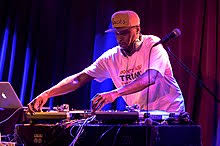Last Updated on April 14, 2025 by Royce Pierpont
In today’s world, music is an integral part of our lives, and disc jockeys (DJs) play a significant role in shaping the music industry. With the growing popularity of music festivals, nightclubs, and online radio stations, the demand for skilled and creative DJs is on the rise. Opening a school for disc jockeys can be an exciting and profitable business venture. In this article, we will explore the steps to launch a successful DJ school, offering various courses and teaching methods to cater to a diverse range of students.
I. Market Research and Feasibility Study
Before starting your DJ school, it is crucial to conduct thorough market research and a feasibility study. Identify your target audience, potential competitors, and market trends. Analyze the local music scene, nightlife, and the demand for DJs in your area. You can gather data through online surveys, local events, and social media platforms. Additionally, consult with industry professionals and local businesses to gain insights into the market potential.
II. Business Plan and Legal Requirements
Create a comprehensive business plan outlining your vision, mission, and financial projections. Determine your unique selling proposition (USP) and marketing strategy. Consider factors such as location, rental costs, equipment, and staff salaries. Additionally, research legal requirements, such as registering your business, obtaining licenses and permits, and adhering to local building and safety codes.
III. Curriculum Development
Design a well-structured curriculum covering various aspects of DJing, including music theory, equipment setup, mixing techniques, and genre-specific skills. Offer courses for different sectors, such as radio, nightclubs, mobile discos, hospital radio, and pirate radio. Provide flexible learning options, such as in-class, one-to-one, correspondence courses, and audio CDs or cassettes.
IV. Equipment and Facilities
Invest in high-quality DJ equipment, such as turntables, mixers, headphones, and speakers. Ensure that your facilities are soundproofed and equipped with the latest technology. Create a comfortable and inspiring learning environment for your students, with ample space for practice and collaboration.
V. Staffing and Instructors
Hire experienced and passionate instructors with a solid background in DJing and music production. Ensure that they are skilled in various genres and can cater to the needs of diverse students. Offer ongoing training and development opportunities to keep your instructors updated on the latest trends and techniques.
VI. Marketing and Promotion
Develop a strong marketing strategy to promote your DJ school and attract potential students. Utilize social media platforms, local events, and partnerships with music schools, nightclubs, and radio stations. Create engaging content, such as blog posts, videos, and podcasts, to showcase your expertise and unique selling proposition. Offer free trials, discounts, and referral programs to incentivize enrollments.
VII. Expansion and Diversification
Once your DJ school is established, consider expanding your offerings to include advanced courses, workshops, and events. Collaborate with local musicians, producers, and record labels to provide networking opportunities and career advancement for your students. Diversify your revenue streams by offering equipment rentals, studio production, and merchandise.
Conclusion
Opening a school for disc jockeys can be a rewarding and profitable business venture, given the growing demand for skilled DJs and the passion for music in today’s world. By conducting thorough market research, designing a comprehensive curriculum, investing in quality equipment, hiring experienced instructors, and implementing a strong marketing strategy, you can create a thriving DJ school and contribute to the growth of the music industry. With determination, creativity, and a commitment to excellence, you can turn your passion for music into a successful business, empowering aspiring DJs to pursue their dreams and make a difference in the world of music.









